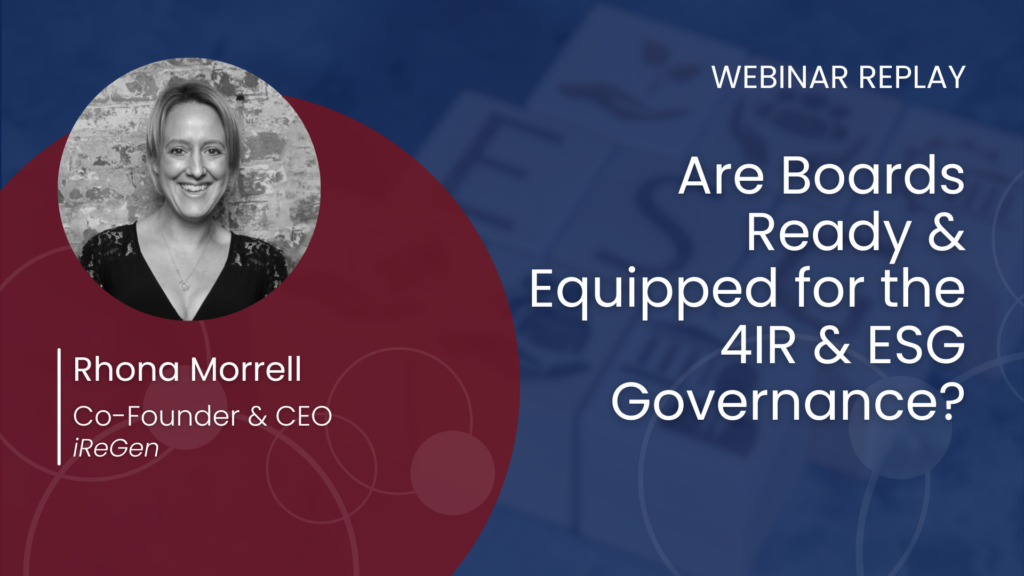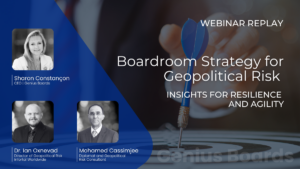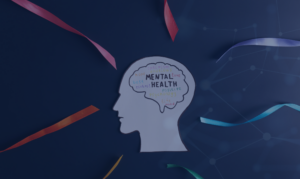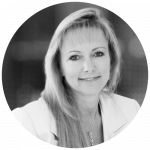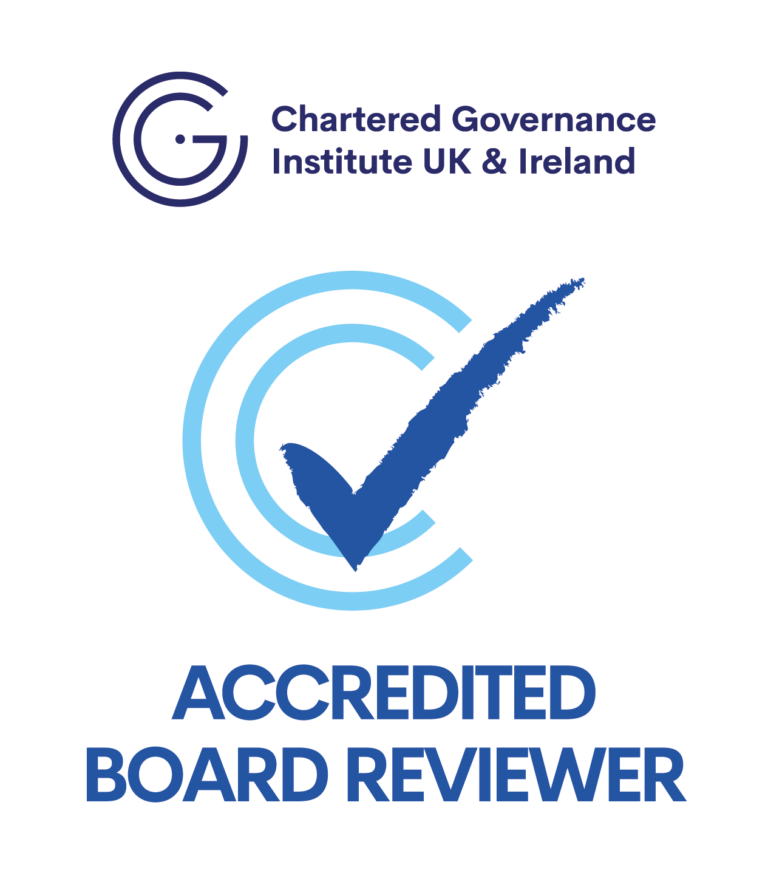It is here! Get ready for the 4th Industrial Revolution and its impact on your organisation’s stakeholders, training, change management, and ESG governance.
Are executive boards ready to tackle these changes and opportunities head-on?
Our CEO, Sharon Constançon and Rhona Morrell, co-founder, and CEO of iReGen, discuss the readiness of organisations and their boards for the 4th Industrial Revolution and the true embracing of ESG.
Listen to the webinar or read on, as they explore and share their key insights during their enlightening conversation on the challenges and opportunities that companies and their Boards face today.
Key Take Aways:
In the dynamic landscape of the 4th Industrial Revolution, businesses face a unique set of challenges and opportunities. Addressing these effectively can position companies for long-term success.
Opportunities:
- Investing in emerging technologies and upskilling the workforce can boost productivity, drive innovation, and lead to the development of new products and services that align with evolving market demands.
- Prioritising Environmental, Social, and Governance (ESG) principles can enhance stakeholder trust, improve brand reputation, and increase access to sustainable investments.
- Boards play a crucial role in ensuring compliance and accountability within the shifting legislative frameworks.
- By establishing clear governance structures and robust risk management and reporting frameworks, companies can adapt and thrive in the 4th Industrial Revolution era.
Challenges:
- The rapid pace of technological change in 4th Industrial Revolution can result in lost productivity, declining market share, and obsolescence.
- The impact of 4th Industrial Revolution on the workforce may cause significant social and economic disruption.
- ESG risks, including reputational damage, legal and regulatory penalties, and loss of investor confidence, pose significant threats.
- The evolving legislative framework around 4th Industrial Revolution and ESG presents compliance and accountability challenges for companies and their boards.
The 4th Industrial Revolution represents the current era of technological advancement, characterised by a fusion of digital, physical, and biological technologies.
In this ever-changing business landscape, how can organisations and their boards thrive and how do they navigate the evolving legislative framework around the 4th Industrial Revolution and ESG?
Transcript
Introduction - Sustainability and ESG Elements in Business
SC: Good morning to all of you who have joined us, depending on where you are in the world. It’s morning, midday, one o’clock in the UK, so good afternoon to those who are joining us from the UK.
Thank you very much for being present. I am Sharon Constançon, I’m CEO of Genius Boards and Genius Methods. We are a consulting company in the board evaluation, board development and board training space.
Let me introduce my guest, Rhona Morrell. I love her description of herself. She calls herself Chief Change and Planet Officer, which is who she is to her customers. She is the Chief Executive of iReGen, an organisation and a person who is absolutely passionate about the sustainability of the business, the sustainability of our planet, the ESG elements, our environment, and climate change.
There are many, many areas that Rhona is very, very passionate about; you’ll soon see and share the passion with her as well as the things that are important to her. What we want to get across to you today in this webinar is to make sure that you understand, as a board, that you actually can make a difference. It’s not difficult to make a difference. We all have to take responsibility to ensure we are making a difference. One, because our customers expect it, our staff expect it, our investors expect it.
All our stakeholders expect us to consider long-term sustainability. Not only is it good governance, but it’s also actually good business.
To start with Rhona, it might be helpful if you could introduce yourself. Tell us a little bit about your journey. It’s been really fascinating hearing who you are today, where you come from, and why this is your passion today.
RM: Thank you so much, Sharon, thank you for the introduction and having me here today. A virtual hello to everybody on the webinar today.
As Sharon mentioned, my name is Rhona. I live and work in the UK. I actually started my career way back when, with big brands like Red Bull. I worked in FMCG companies – fast moving consumer goods companies, and I worked my way up to sort of board level. So, I’ve sat where you’re sat essentially, as an entertainment and sports director within the NEC group – and it was during that time and over 15 to 20 years of work that I realised, through traveling, through doing philanthropic work, that there was a lot more going on.
Having come from a brand, like Red Bull where we were risk takers. Culture was really important and understanding your stakeholders was at the heart of everything we did. I guess in a way, I just assumed everyone was like that. Fast forward sort of 15 years and having worked in commercial, marketing, innovation, supply chain, I’d really started to get a really good understanding of the bigger picture of business, but burning all the way along through every trip with the family or scratching the surface of what was going on around me. It soon became very apparent that the way we are transitioning as a world both through the 4th Industrial Revolution, but also through sustainability, that for me, it was a no brainer.
Once I knew the facts, then essentially, I kind of had to reinvent if you like and kind of study in this area. So, yes, I’ve been working in this space for about seven years now. I studied at Cambridge, I’ve read far too many books, but in terms of me today, I’m a trust mentor. I’m also on the board of trustees for Education Africa. My day job, if you like, is essentially advising educating and empowering people, from SMEs to corporations on these very topics.
I’ve got a couple of really wonderful global initiatives, the Water Initiative in India, a jungle restoration project in Panama and a natural fertilizer project in America.
So alongside doing workshops in this space, I love doing these sessions because it allows that interaction and myth busting and kind of giving you that knowledge and the facts to really hopefully empower you to act at the end of it. So, thank you Sharon for having me.
Board Diversity, Sustainability, and Literacy for Future Success
SC: Inspiring as always, thank you so much. It’s fascinating that the fact that you have interests in such different environments such different places. So, I’m not talking about those specifically at the moment, let’s get to boards of UK companies, what is important for them to consider?
When I’m talking about doing a board evaluation, one of the things I talk about quite often is, is the board Fit for the Future? Is that board position, structured, composition, people, leadership, culture, all those different aspects that we assess at the time of a board evaluation.
Is that organisation ready for the change that’s coming? Because we all know that as fast as we are trying to keep up, our board environment is actually running faster than we are – and I think a lot of organisations don’t realise that and we sit around on boards for nine years, how can you be fit for the future?
So if you [as a Board Member] have been there nine years? So how do we refresh, regenerate our boards over and above having high churn and therefore high learning? So, there’s a balance between both of those we know about. What for you, in your space makes board future fit?
RM: A great question. I look at the longevity of someone, often as a pop artist; if you can continuously learn and reinvent and move with the times, then I think there’s no problem. If you’ve been there nine years, I think it’s just whether you’re still doing it; I did a recent post recently about how women were told and taught home economics, and honestly, I nearly fell off my chair when I looked at that kind of standard. But essentially, a lot of boards are still working in very traditional economic models and patterns, etc. So, longevity is not always a bad thing.
For me, it breeds consistency. It can also show a real good bond with its stakeholders around trust because trust is absolutely essential. However, I think a fit, you know, a fit for the future, fit for purpose board, essentially nowadays, has to be able to recognise not only that the board has to move in terms of diversity and inclusion but also that they’re going to set carbon Net Zero targets.
The challenge I think that boards have today is that very, very few recognise the accountability for sustainability; for example, there’s only about 2% of boards actually have the correct literacy or expertise in that area. And that’s not through necessary negligence, or we’re not bothered, but it’s actually such a huge topic. So, we’ve shifted from global warming to climate change.
The way I like to talk about it and empower people is more around systems change and sustainability. And I’d love everybody in this call to recognise that there are 17 Sustainable Development Goals, and within that, just under 300 objectives of where you can act and influence. Now, I appreciate that might even still seem very, very overwhelming, but the fact that we’re not encouraging boards, and we’re not giving them the literacy and the training that’s required, we’re then relying on maybe misinformation or lack of knowledge. And that’s, therefore, when mistakes happen, either willingly or not, you know, not knowingly, but that board for the future.
There are plenty of reports through McKinsey that can show how a business can be 36% more profitable with a very, very diverse board. And so, when I look at the stats also in investing, the relationship between only 1.5% of all invested goes to women, for example, but their success rate is far greater. So, I think, although we’ve talked a good talk about boards and diversity, sadly, we’ve acted very, very slowly.
So, I think that essentially closing that gender, racial, and generational gap is something that is really a no-brainer now. You know, it is kind of whether that’s a silent board and you bring on a young youth team, whether that is taking somebody who essentially was going to challenge you, as well as you challenge them. And I think not being afraid, afraid of that.
We humans are scared of change. We like to stay with the status quo; we can be quite rigid. And if it’s worked before, and we’re still making profit, and I think my team is still happy, and the customers are still buying, then it’s very easy to keep going along while not seeing what’s coming at an exponential rate at us. And I think, sorry, I’m sure you’ve got a ton of questions.
So, I think recognising who all our stakeholders are not just those that essentially, we pay dividends to, driving trust in that area, and increasingly, literacy across technological advances, and sustainability, is going to be critical.
Diversity, Equity, and Inclusion in Leadership and Sustainability
SC: There is a lot to take in; they’re already there toward the rest of the hour; we have still got ahead of us. You were talking about a board being fit for the future. We also had you provide quite a lot of context around the aspect of diversity. Just an observation that I make: we talk about D, E, and I, and one of the things that I get passionate about, not quite as passionate as you do about yours, but I get passionate a little bit about my stuff as well is, I actually think sometimes we look at some of these aspects of doing the right thing in slightly the wrong lens.
So, if you look at, for example, D, E, and I, diversity, equity, and inclusion, my view is that we should start with the I. If we do not have a mindset, through our leadership through the culture of our organisation, through the people we’ve brought in so far, if we do not have a mindset of being mindfully inclusive, any aspect of newness is going to be a change too far, and we’re going to reject the diversity we’re bringing in – and we won’t listen to it, we won’t absorb it.
So, my feeling is that we should be looking from the leadership perspective, which is a question I’m going to ask in a moment: Is it critical to have this open mindset? We can then have policies, procedures, and processes that we can bring into the organisation that follows on from the culture we’ve already started with, or being then equitable towards the different diversities that we are bringing in, and there are so many of them, I talk for hours to my students on diversity alone, this for the rest of the topics we’re going to cover, and with that, both the mindset and the governance that we’ve brought in through policy, we now can actually look at what diversity is are applicable to this organisation. And not every diversity, in my view, is appropriate.
So, you could imagine having a menagerie of animals or a pack of dogs; all the dogs are different, from a Chihuahua to a Great Dane, but they are dogs; the others, birds fly off, snakes bury themselves, sharks are in the sea. Yeah, the diversity is so great that there’s no degree of leadership that’s going to bring value out of that. So, we always talk about diversity, and for me, it’s critical that diversity is aligned to culture, to goals, to industries, to customers, and to all our stakeholders. I think people get so carried away about the fear you were talking about – it’s so big, diversity in itself is equally such a huge thing.
If we break it down to what diversity is meaningful, I think leaders would probably absorb it a little bit easier. Especially if we’ve got the governance, we’ve got the process, it becomes easier for the board, rather than to sort of start with a blank sheet of paper. So, to my question, sorry, there was a little bit of a long intro. But to my point around leadership, we have leadership at two levels on the subject of sustainability and doing the right thing in the aspects of climate change and carbon diversity – we obviously have an internal champion, we have a board, and we have a chair, chairman of the board. Where do you see those responsibilities sitting? Typically, and where should they be if it’s different?
RM: Yeah, brilliant – great question. I just want to touch on a couple of things that you have said here. So I think we are talking about the nature-nurture element and us as individuals – we have this unconscious bias around the world we grew up in and the circles that we share, and until we allow ourselves to – in my space, for example, I like to listen and read to people who oppose some of my beliefs and thoughts in sustainability, you might call them climate deniers, you might call them lobbyists – that I believe in opening my eyes and ears to those conversations, but also the very nature that in sustainability, we talk about biodiversity.
Now, people can understand that the interconnectedness of biodiversity makes it all work, and it’s all in balance. The moment you break one of those tipping points – like the moment we stopped having wolves in Canada, or if we didn’t have whales in the ocean – it is a tipping point that hits every single species – and we as humans are the only ones that are trying to live outside of this interconnectedness. So, just touching on those points, being brave to take yourself out of your shell of what you think you know can really be empowering – and actually, diversity is the same as biodiversity; we all need each other to be interconnected – and that’s where the magic happens.
So, you touched on culture and also the role of sustainability; in a recent study, about 69% of everybody who has a sustainable role or a title within businesses has come from within have been internally trained, and so there is a massive shortage out there because that’s not really necessarily been coming through from education. I’m pleased to say I’m seeing it now at the GCSE level, and I’ve got two daughters; one is at that level. So, we’re seeing those topics, and there’s a new section in geography that talks about environmental risks.
So, it’s coming, but between now and then, we have this, this big gap. And I think that’s been led due to a lot of denials and lobbying over the last sort of five decades. So, recognise that if you’re going to upskill an individual within your business, they need to look and think bigger than just your business and your sector. Okay, so that would be my first piece of advice. My second would be that, as a board, you are accountable for delivering that.
So, I don’t personally believe that it’s down to just one, you know, Chief Heart Officer or head of sustainability. This is about how you are setting your KPIs within the business to reflect a modern-day organisation. So, what initiatives have you got? And who is responsible for those initiatives? Is the board bonused against sustainable initiatives? Has the entire workforce got a KPI within innovation and technology or within sustainability?
So, until that becomes part of your company’s DNA, you’re always going to be talking about one thing but not acting out in real life.
Sustainability and Business Practices, Including KPIS and Long-Term Vision
SC: You’re absolutely right about it because you see it so often; what we measure is achieved. And how many of us don’t like quotas? We don’t like KPIs, but we do know that they do create action. What we’ve always got to watch out for is one thing, maybe just a quick question in this, quite one, often we will have a KPI in finance when a business and I’ve seen this a few times we need to up the net profit ratio from let’s say, 10% to 12%, for argument’s sake.
So, what are they doing to cut costs? Ah, good. We’ve got our 10 per cent gone to 12%. But we’ve cut costs variably, [cut] marketing, we’ve cut staff, we’ve cut investment, regeneration in technology, we’ve cut things that are ultimately going to trip the company up, and it’s going to fall over.
So, we have not achieved the right outcome. So, our outcome is wrong. The KPI, therefore, creates unintended behaviour and unintended outcomes. How do we set KPIs in this really complex area? That we actually get the right behaviour?
RM: Yeah, great question. And I think the key word there, and it’s not, you know, no pun intended, is sustainability.
So, having been in the corporate world, I know very often, and I’ve lived on that you put in your, you know, the kind of boards they write, what are your targets for this year? What are you going to achieve? You put in your target, and it comes back with plus another 10% on and you like, or eliminate, where did that come from?
The very notion of it being sustainable. So yeah, we can cut out technology, we can cut out training, you always find that the HR division will suffer. And we can cut out the headcount. So, we can keep restructuring, but at some point, you will hit a breaking point or a tipping point; normally, it’s on your people, essentially.
So, sustainable only really describes focusing on something that just because you’re doing it doesn’t mean that it is sustainable by its own nature; you can’t keep doing it. And if what you’re doing is wrong, then it’s sustainably wrong. You’re just going to keep doing the same thing.
So that’s why people are moving now and talking about purpose, profits, people, and the planet. And yes, none of us working in this space are expecting companies to break even every year; we need to talk about being profitable.
SC: A generation of reserves is needed so that the company is sustainable in difficult times. So, we don’t have a profit problem with profit. What is that balance of profit for?
RM: Yeah, and I think that’s a really great point because actually, the root cause of all of this that we talk about is, of course, our vision and our longevity.
So often, we’re looking at maybe a couple of years, we’re thinking about monthly targets, my end-of-year bonus, actually, I want to retire in three years, or I’m going to handle this business over, but it’s about questioning – well, what’s the legacy of handover going to be in 5-10? You know, 100 years’ time?
And how are my stakeholders, current ones and future ones, going to judge my performance? Now, of course, we have been beaten up for the last pretty much two decades between financial crashes, Brexit, and a pandemic; it has felt utterly relentless. And now, now we’ve got this fourth industrial revolution, threatening automation and jobs.
Some boards might think, yes, that’s more cost-cutting and money-saving. On top of that, we’ve got this huge and growing demand around, and we’ve got to be more sustainable. And you’ve got to think about your impact on nature from doing business. Sadly, we’ve taken so long over this that now it’s just going to be legislated.
So, there is going to be reporting emissions; there’s going to be a carbon tax, plastic tax, waste analysis, there’s new legislation coming in from the EU around greenwashing. All this stuff is coming because, essentially, we’ve been too slow, either kind of brushing it under the carpet, not really understanding it, and just focusing on one thing, and that being carbon, and that’s probably the biggest mistake you can make from the outset.
Sustainability and Climate Change in the Business World
SC: That is a big mistake, because that is one that from if you listen to the content that came out of, I think was particularly cop 26, cop 27. That sort of era was all about carbon. It’s not about a sustainable planet.
There was a comment I heard from an expert in your field, and he was talking about, and he’s more about the planet, so his focus is the planet. So, it’s a bit different – It’s not quite where you are, and he’s not so much in with boards; he’s more about how to help businesses understand their impact on the planet.
His views, if the planet were a human and a patient, they wouldn’t only be in hospital, they’d be in ICU on a ventilator. If you’d said that five years ago, we said OKAY, fine. Having no concept of what a ventilator actually meant.
The pandemic has taught us the seriousness that if somebody’s on a ventilator, that is now mission critical. And many people in the planetary space, the climate change, are saying that the planet is beyond the tipping point. Now you made a comment that totally contrasts that last week, where you said Mother Earth will look after herself. Please help me understand those two dichotomies.
RM: No, absolutely listen, there are probably around nine major tipping points that we measure. So carbon is one of them. However, carbon and greenhouse gas emissions will include, of course, methane, which is 80 times more potent. So, I think a joke from last week’s session, the GOV UK Government want to give tablets to cows to stop them burping versus let’s carry on and still grant new fossil fuel contracts and oil and gas, which is completely contradictory to their carbon zero.
But other tipping points are things, for example, biodiversity loss, and the use of chemical fertilisers globally, which, as we know, goes into the soil, diet, essentially kills the soil, and then runs off into waterways and oceans. So, it has a huge impact on the planet.
When I talk about it, the biggest challenge here is really the future of humanity. Because we talk about the sixth mass extinction. And I have to be careful when I’m talking about things like this because this is when people start to go, “Oh, she’s going off on one; we’re all going to die or burn or starve or drown” ” It gets all a little bit, “whoa, you’ve gone too far owner”.
But the reality is, as a trajectory between the 4th Industrial Revolution, and how that’s going to change our lives, and what we do, and what we don’t do in the working environment, as well as continuing to consume, I think that’s the keyword consume the planet’s resources, it cannot physically renew those resources quicker than we are taking them. So, at some point, we’ll get to a moment where you’ve got lots of people essentially not working, and you’re going to have lots of people migrating because the global south is suffering, potentially civil unrest.
So, you are going to end up with a mass extinction of humans. But what I’m really confident of is that Mother Nature is really amazing at regenerating and evolving using its secret weapons, you know, from mushrooms and fungi and the way trees talk to each other in the soils. That if humans weren’t here on the planet, she would be fine. She absolutely will be fine.
SC: We’ve got to start behaving. So, getting back to the boardroom – just chatting about the boardroom – I’m sitting there as a non-Exec, and I’m saying, “Oh, my goodness, I feel terrified. I’m out of my comfort zone. I know we living in a VUCA very volatile, ambiguous space, and I don’t really know what’s going on, there’s so much uncertainty”- and I’m sitting there thinking, “Now there’s this other thing I’ve got to learn about” – and not talking about IT or the 4th Industrial Revolution yet, let’s just talk purely about our sustainability at a more climate level, the things that we’ve got to do, right.
What is the kind of questions, I as a director, should be considering asking of the Exec or ask of ourselves as a board – so that we think differently?
RM: Absolutely brilliant question. And I guess what I’ll do is I’ll share my top 10 with you, and maybe you can share it out, but I’ll pick a couple of them out. But essentially, what is your organisation’s sustainability mission and goals?
So, you will have as a business, or I hope you will have a mission, vision and values. And I would hope and trust that the culture of the business follows that ethos. So, first of all, ask yourself, how do we act and behave? And how do we take the 17 UN sustainability development goals?
By the way, you can’t do them all, and no one expects you to do them all. But you should be able to pick out three, four or five of those objectives that really marry with what you are doing as a business. Secondly, you need to start looking at what steps you have put into place to reduce your carbon footprint. So, even at a basic literacy level, we understand there are scopes one, two and three of carbon emissions. And I do understand that there’s a lot of carbon tunnel vision, but it is common knowledge and terminology now, so I get why people are rolling with this.
So, what have you done to either understand what your emissions are? and how are you tracking them? How are you measuring them? And I guarantee you, scope one and two are pretty simple. To get scope three is really hard because it’s your entire supply chain, anyone who supports you or as an external business, essentially measuring your percentage of those carbon emissions through that supply chain. So, I’m not going to lead you out in a false sense of security; that is a hard, hard area to get right.
I guess another question would be around, how do you talk about it or promote it internally and externally with your stakeholders? Are you knowingly greenwashing? Are you encouraging your teams, essentially, to come up with ideas with you? because I guarantee you, your teams working in their different divisions, whether you’re a product or a service, will have thought of ideas that will benefit the business, whether that’s as simple as reduction of waste or reduction in efficiencies. The good news is, guess what? That saves you money anyway.
So don’t look necessarily at if I was to implement sustainability, it’s going to be a cost on my P & L. Yes, there are going to be costs on your P & L. But I would also challenge you back, what’s going to be the midterm cost to your business if you don’t address these areas?
Sustainability Goals and Their Impact on Businesses
SC: So, you talked about the kinds of questions one might be asking as a director, so the first question that came to my mind is 17, sustainable goals? If I had to choose three out of those 17 that are most likely to be applicable to our audience? What might those be?
RM: Honestly, I, because we’re talking to boards and vary in different industries and sectors. So, take it, for example, if you are on the board of directors for a water company. I genuinely don’t know who’s on the call.
So, if you’re on the board of directors for a water company, I would envisage that at least you would grab one that looks at life in the water. Because essentially, your mission, vision, and values are around, I’m assuming, delivering maybe bottled water, which may be common goods and services. And so that would be a no-brainer. You’d also be looking at the sustainable development goal that looks at consumption, and also looks at wastage.
So, how are you, as a board member, delivering on wastage? Only 7% of boards across the UK are actually measuring and reporting water usage and wastage. So, it really is a very simple stage. Just look at the titles; most of them are no more than three or four words long. And go, “Actually, how does being here every day impact life on land, life underwater, inequalities, education, consumption, and technology?” I could go on and on and on. But that really is your starting point at the next board meeting, print them off, have them up on the board and say right, actually, do we factor any of these in?
SC: You gave us a whole number of examples there, which is extremely useful. We’ve talked about the diversity aspect. And we’ve covered that in quite a bit of detail. But things like wastage, since that is a pretty easy one for every single one of us to consider, what we waste food, packaging, all sorts of things, recycling and making that part of our DNA which wasn’t 20 years ago, it is now, so we all are doing a little bit, and we can probably all do that little bit more.
RM: So, just to be fair, they’re just touching on that. I think this is where you can really get your stakeholders involved. So, find out what it is that they’re worried about, find out what it is. You might have a couple of key players in your organisation, employees who are really passionate about this and actually want to see change – bring them in as a non-exec, bring them in to advise you.
Go and speak to some of your grandkids or your nieces and nephews. Find out what’s really bothering them and then think, well, okay, how can I turn that into an opportunity for me? How can waste reduction impact my P & L positively? And I think as if you can lead by example. So, what do you do in the office, how do you do it at home, or some of the things that you might do with your family? You know, I talk about being a planetary citizen, as well as a corporate citizen.
Those are the things that you could align with all of your stakeholders and say, these are the four or five things that we are going to become famous for; we’re going to make a few mistakes, I’m sure, along the way, but there’ll be educated mistakes. So, I really liked the idea that it’s kind of becoming a corporate citizen, putting your hat on something and just going for it.
SC: I think you said at the beginning that one of the tipping points for businesses if they’re getting their sustainable project as a cost-cutting project rather than a sustainability project, is that the place that tends to hurt most is around people.
One of the things that a lot of organisations, I understand from what I read, because I like to read, as you, that you have some people will only work for an organisation that has certain sets of values, or certain objectives or certain ways of reporting or engaging their customer, all these sort of things that we’ve been talking about now. And if we don’t get the right talent in the organisation, we might as well stop straight away.
RM: I think it’s a really important point. And often people ask me why I should do it. It could be expensive. So, well, it’s not just the financial institution.
So, your investors and your bankers who are now expecting you, and that was done deliberately, I think, because let’s be honest, start with the money. If that drives legislation and questions, then the rest will follow. So absolutely, in the next generation, employers are looking for a place that they can be proud to work for and kind of becomes part of their character and culture a bit like, you know, years ago, when I was at Red Bull, I was so proud to work for that brand. I absolutely loved it.
And I think, looking and not only that, even me now in this space, I’ve turned down work where I’ve been openly asked essentially, to kind of help greenwashing or to work for companies that just are saying something on the outside, but actually, after a couple of days of scratching, they’re not and my husband’s like, what are you doing? That’s money, but I can’t; I’m not going to do it, I’m not going to do it; there will always be people that will.
But the reality is now, if you don’t start doing it, there is somebody out there who will scratch the surface. There are now lawyers who are not willing to fight for gas and oil companies, not willing to take people like me who might have protested at the big one on Friday or silently protested somewhere that you know that that movement is changing.
So, I think you, you’ve got to be able to embrace this but embrace it for the positive opportunities that it can bring and be proud that I guess I always say if anything that you are doing around the sustainable development goals could be perceived as unkind, unjust, dangerous, then I’ll happily stop what I’m doing tomorrow.
But I’ve scratched the surface of all of those goals and the objectives, and there’s nothing there. It’s a bit like working for a charity, and you’re not going to turn around and say, well, I’m not going to help children in Africa get a fair education.
So, I think that’s the thing to remember at the heart of this. It is about people and the planet and sustainable profit.
Technology and its Impact on Business, Society, and Individuals
SC: And sustainable profit is important. Let’s change tack slightly, and I wanted to talk about technology. In the boardroom, we have non-executive directors. When an IT subject comes up, they zone up. We’re talking about hardware software, people, and new challenges that the transformation cultures and transformation projects. I went into one company that was so funny; they were talking about this massive transformation project, but they had they were just scratching the surface in board evaluation. They were merging two very manual systems into one manual system rather than two, and they called this their transformation project.
So, I went to the chairman, and I said if that’s transformation, what are you going to call it when it is transformation. “What do you mean?” He hadn’t actually scratched the surface to understand what this transformation technology thing they were doing. It was the simplest of things, like linking two Excel spreadsheets together.
But to get the point across, it wasn’t transformation. At any point in time, it was a tactical step of taking an action that was going to be a step. Yes, but it is a very, very early step in something quite major. But now, if you look, five years have gone through a pandemic gone by transformation and technology are two words you can put together, but just add 100 kilometres an hour to, or 200 miles an hour, should I say, add a huge degree of speed to it, which immediately brings the average non-Executive Director into a greater position of fear than there were already, they were fearful because it and Chief Information Officers and these intelligent people pull the wool over their eyes. How would you help a board?
First of all, let’s explain what AI is. What are some of the technology trains that are coming towards us, or are the lights not the end of the tunnel? It’s the train actually coming towards us. Let’s talk about that generally, and then we can get into some more specifics.
RM: So, I guess, as part of my kind of Popstar continuous kind of reinventing myself, but trying to go with the times, not only am I driven because I’ve got children, but also, I’m driven by, the noise around crypto and blockchain and all the bad bits and what is blockchain and the fourth industrial revolution. And so, again, inquisitively, you go off.
So, I think the 4th Industrial Revolution really is a signal that our last industrial revolution was obviously quite nicely tied into how we’ve kind of ruined things in the last 150 years from a planetary perspective. And now we’re closing that revolution down, and we’re moving into this technological revolution.
So, whereas before, we were taking things into mass production, but still using people, essentially, and heavy materials, machinery and goods, we’re now moving into this technological world that actually has pretty much blown my mind as well, when you look at some of the positive elements. We can touch on these things like – how it’s going to enable driving greater efficiencies, reduction of waste, smart contracts in procurement, how we can track and measure and monitor our products and services for circularity, and how we can use this proactively within our supply chains.
And I’m sure I’ll touch on that. But then equally, looking and having our eyes wide open around what are the biases around the data that it’s feeding from? And there was a report in America that said up to 47% of jobs in America could be at risk through AI and automation.
So, let’s strip this back: you’ve got blockchain. And essentially, that is exactly what it says on the tin. It’s small blocks of information that we just keep piling on top of each other. So, for example, for example, the way I’m using it at the moment for my jungle restoration project is that if somebody comes in and pays 10 pounds for their three-by-three-meter square in that jungle, that is recorded in the blockchain, no one can ever dispute that ledger.
It is it’s used from what3words, you can Google Earth, it’s, that’s there, and that says that Sharon owns that square, she bought it on this date. And that is irrefutable. No one can ever come in and change that. So that’s how blockchain is going to help me with credibility and transparency in what I’m doing. So, you’ll start to see here now that this is how it can be used for good. But with anything that can be used for good, we’ve also got to think about people who might use it to the other way.
So, I build that in the blockchain. And every time Sharon comes to Panama and plants a few trees, we take a photo that’s logged, and all of that information just keeps adding to the blockchain. You’ve then got the Internet of Things, and to make that really, really easy, essentially, you and I probably remember the phone would ring, and your brother or your sister would fight over who was picking it up. And then somebody in the household would be screamed at, you know, such and such is on the phone.
And then we moved into the internet doing faxes and email, and I’m really showing my age now. And we were able to interconnect different parts of our lives through different forms of medium. And now, like if I want to, I can pick up my phone, I can put my heating on, I can set the cooker off, I could it, you know, that essentially is the Internet of Things.
It’s all the things, and that’s probably why it’s called that. Because there are so many factors within it driving, clean tech, FinTech, and medical tech, you’ll often hear a lot of these terminologies being thrown around NFTs, which are non-fungible tokens. Now, obviously, this isn’t a kind of Fourth Industrial Revolution webinar per se. But what I’m sort of saying to you is, go and just Google some of those words. What does it mean? How does it apply to your business? Because I absolutely guarantee you, your younger employees, or your younger family members are using this on a day-to-day basis.
Now, my daughter might play on Roblox; for example, she will buy an outfit, essentially, that’s an NFT, as she doesn’t call it that. It just becomes part of her DNA; she understands it. And this is what: if we don’t engage with it, we’re going to miss the trick. We’re going to miss how we communicate; how do we do our marketing and our commercial strategies?
So, being aware of the terminology would be the first starting point. Being able to have an adult conversation about some of the ethical issues. So, what is the data coming in? How could it impact the well-being of my team? And more importantly, how are we going to retrain? There’s a famous saying that it’s not AI that will mean you will lose your job; it’s someone who knows how to use AI will take your job.
So, I know after last week’s session, there are so many really cool apps out there. You know, the example of Excel spreadsheets is a classic one. You know, it’s amazing what you can cross over now and not only just combine the data but do a complete presentation of it by asking a few simple questions, and it does it all for you.
So, be honest about if you’ve got a copywriter. So, if you’re a copywriter, right now you thinking, does my job become obsolete? Well, actually, no, but how can you use AI to enhance your role and, therefore, give you more time to make better decisions?
We all talk in the workforce. Don’t be the 70-20-10 rule. I don’t ever remember getting the 20 or the 10%. To train or to do innovative things, it was just 100%, 100 miles an hour, and that’s what it’s designed to do.
AI, Blockchain, and Fintech Impacting Businesses and Governments
SC: I think one of the areas that a lot of companies will immediately home in on in terms of where are we going to have the savings and let us look to financial services, for example, where you’ve got a transaction that happens, A transact with B can happen in property, it can happen in all sorts of things that are transacted. And one is given to the other, the physical in return for something in return, even if it’s part of it.
That degree of reconciliation that occurred in my life when I was younger, to a lesser degree now, because technology is already helping it as it is, but that you talked about the tree and their plot of land is one version of the truth.
Now, in this kind of environment, there is only one version of the truth. So that whole regime of reconciliation of the bank balance bank, or the bank statement, is all history. Because things are talking to each other. There’s one version of the truth.
So, I think in a lot of your administrative roles, there are going to be changes. But I think as we all need to accept, every single one of us is going to have things that we’re familiar with that we can do better and differently. And that just having that smartphone in our hand is half the time we’re doing it. We don’t actually recognise how we were using some of those things.
We talked about AI, and everyone gets really excited these days—and suddenly, from never knowing what the word ChatGPT is, everyone’s an expert or terrified. Just give us some examples around that that maybe demystify a bit and maybe talk about some of the other imminent AI things that are likely to touch us. All today, tomorrow, the next day?
RM: Yeah, I think, first of all, just forget what anyone else says. Go around and go and have a play around with it. Literally, that has always been my best advice. Just go and have it play around with it; it’s really easy to open an account and kind of do that; I’ve done that myself.
Talk to the younger generation seriously; they know it, and they live and breathe it every single day. But take, for example, a smart contract within the blockchain and within AI that can drive you huge efficiencies for supply chain departments and procurement because what it enables you to do is without having to go right, okay, I’ve got my 12-month renewals now, and then I’ve got to do in six months, I’ve got to start the negotiation contracts off again, and all of that process, a lot of that can be so reduced in terms of time, because it automatically just happens for you.
So, whilst that’s happening, rather than looking at it and saying, then, I only need half my supply chain team. That’s when you’ll then task in your supply chain. So how do we transition them from goods and services that we are currently using into goods and services that can identify a better, purposeful people planet sustainable profit?
So, it’s about recognising the efficiency savings in time, but then how do we then do that 20 10%? How do we then challenge the supply chain team to think really innovatively, and you talked about it, about transformation? I find that incredible sometimes when we look at what people perceive as transformation, and actually, it’s just a little bit of change.
So, I think I should also take things like FinTech. Fintech is going to drastically challenge the way we do business financially. So, it’s going to remove a lot of middlemen and women; it is going to challenge what we as business leaders have often hidden or kept behind closed doors, and there is going to be more and more demand. So that’s my kind of little square. I don’t care, actually, because I will show that Sharon’s paid 10 pounds and nine pounds have gone to the project, and we’ve kept the pound to keep the lights on.
There are going to be more and more instances of businesses acting in that way that lots will wait and follow or wait till legislation. But this tech will really change the financial institutions that will change governments and legislation and policy as well. Because we’ll soon be able to dive into every pound that we, the government, spend, where did that contract go? Who was that contract supplied by? I mean, COVID, I’m sure, is some brilliant example of a tremendous waste of public money. So again, don’t be scared by it, but just know how you could use it to your advantage.
Boardroom Dynamics, Transparency, and Diversity
SC: One of the things that we talk about in terms of an effective board is the relationship between the executive and non-executive between the two leaders that are working together with a constructive challenge between them, not the director, by the way, not disrespectful either way. And both one needs the board, one needs the organisation, they don’t clip each other’s wings.
So, you’re looking for this, this leadership that goes like this together. And behind the scenes, obviously, the chair is challenging the CEO to think about. Have you thought of this? Have you thought of that? But in the board meeting environment, the chair now leads the meeting, which is very different to somebody leading the organisation. But one of the things we always demand as non-executive directors on a board is transparency.
One of the things I see so frequently is a lack of transparency, lack of openness, and resistance to the board’s inquiries, challenges and debate; they get out of my space. This is mine. Don’t step on my toes. Don’t clip my wings, which I do agree with. Don’t clip the CEO’s wings because they’ll leave anyway. So that’s not a good idea. So, make sure you give them the space to be themselves.
So now we’ve got this aspect where you are saying to us as non-execs that naturally transparency into an organisation is changing.
RM: Yeah, no, absolutely. It is. And I think what I would say to that is I’ve worked in very, very different organisations for one where culture trust and being able to challenge My MD or CEO was easy and welcomed and supported. In fact, that individual knew that when I left and took on a better role in the future, he’d done his job by me.
So, I grew up in that world. But then, moving forward into other corporate structures, there was a fear that you couldn’t, you wouldn’t dare challenge the head of finance or the head of sustainability or the CEO. So you have to ask yourself as a board, I’ve made the ability and that culture within the organisation to bring new ideas to be transformative and to, you know, I guess the way I look at it, I always love working with people that you sit there and go, Oh, God, why didn’t I think of that? That brilliant, genius idea. And I think you’ve got to ask yourself, Am I driving that behaviour in the first place? Am I open? Am I welcoming that?
There are different ways of doing that. You can do it openly and verbally, you can do it in forums, you can have little boxes that sit across different departments, and people can put anonymous ideas in or give anonymous feedback; there are different ways to do it. But yes, people are expecting more transparency of information; the Internet of Things has essentially allowed us at our fingertips to get information now. Information is often biased depending on who’s put it up there and controlled, etc.
I love being in a boardroom. And I love seeing the dynamics of different players, that actually when you allow yourself to feel a little bit vulnerable and allow someone to come in and challenge you in a really empowering way. When you then feed that out to the rest of the business to get consensus or see what you think, you’ll actually start to see that momentum move.
And I can’t exactly say it. To this day, the first business that I was in was the way we worked, the cultural aspects, the innovation, the risk-taking, all of that is so powerful. It is so powerful that 20 years later, you know, we are all still comrades and friends around the world. Most of us are entrepreneurs, and a lot of us have our own businesses. Please embrace it.
Closing Comments
SC: Well, that was a perfect way. I was going to ask if there is a final comment you’d like to make. I think you’ve just done exactly that. And we are on time, Rhona, as was last week, it was a totally different discussion.
Amazingly, how in two hours, we’ve actually covered two very, very different grounds of topics, even though our titles were fairly similar. And I’m sure we could talk for another two hours and still cover new territory. And I’m sure if we were to look at all the many questions that could come from all our stakeholders in all of our businesses.
But the message I take back that I think is the strongest one is to talk to the younger generation. I was in a meeting the other day in a co-working group with four people together, and our ages ranged from my age down to her, which is about 23. She was talking, and I was thinking, “What is she talking about? Okay, tell me, show me. Let me see. Okay. All right. I could see now what this was, but I didn’t even know it existed. I didn’t know that app was available.”
We’ve got used to the apps we use because those are the ones we use innovatively. I mean, the biggest innovation in my life was the Lotus 1230. My goodness, me, has life moved on? But it just gives you an idea of the value of one of our diversities, and that is age. It’s so much. So today. Today’s boardroom is to bring in that age diversity in some manner; it might not be a Non-Exec., but you want that intelligence to come to the board.
RM: No, absolutely. And I just want to say a massive thank you for having me on today. Sharon, please embrace what can be seen as quite scary with the 4th Industrial Revolution and sustainability ESG. But please, please embrace it and allow people like me and other experts to come and really empower you to make those changes because it can be done.
SC: Thank you. I appreciate it. Yes, we can all make a difference; when we break it down, it’s actually day-to-day things in many cases. Thanks for your time, Rhona and look forward to speaking again.
RM: Absolutely. Thank you, Sharon.
SC: Thanks, Cheers. Bye
Ready to navigate the complexities of the 4th Industrial Revolution & ESG?
If you would like to:
- Find out more on how to energise creativity and empower your organisation’s leadership to think sustainably.
- Framework you decision-making capabilities around innovation and the modern agenda.
- Find out how to ensure your board is compliant with evolving legislative frameworks.
- Explore how we can help your organisation embrace change, prioritise ESG, and drive sustainable growth.
- If you have any questions that relate to specific challenges.




